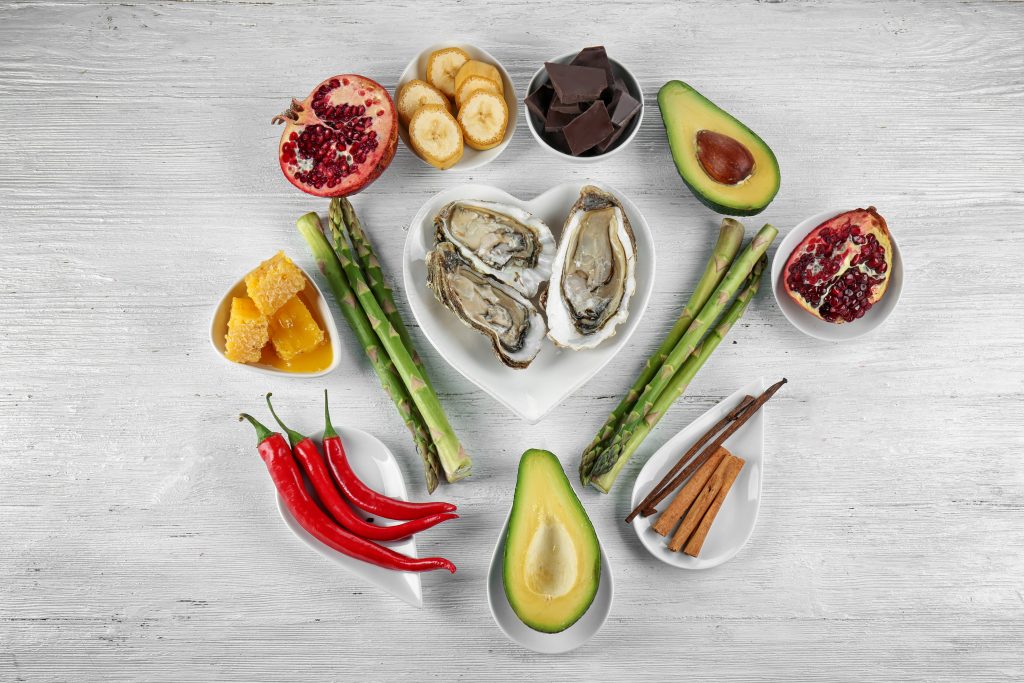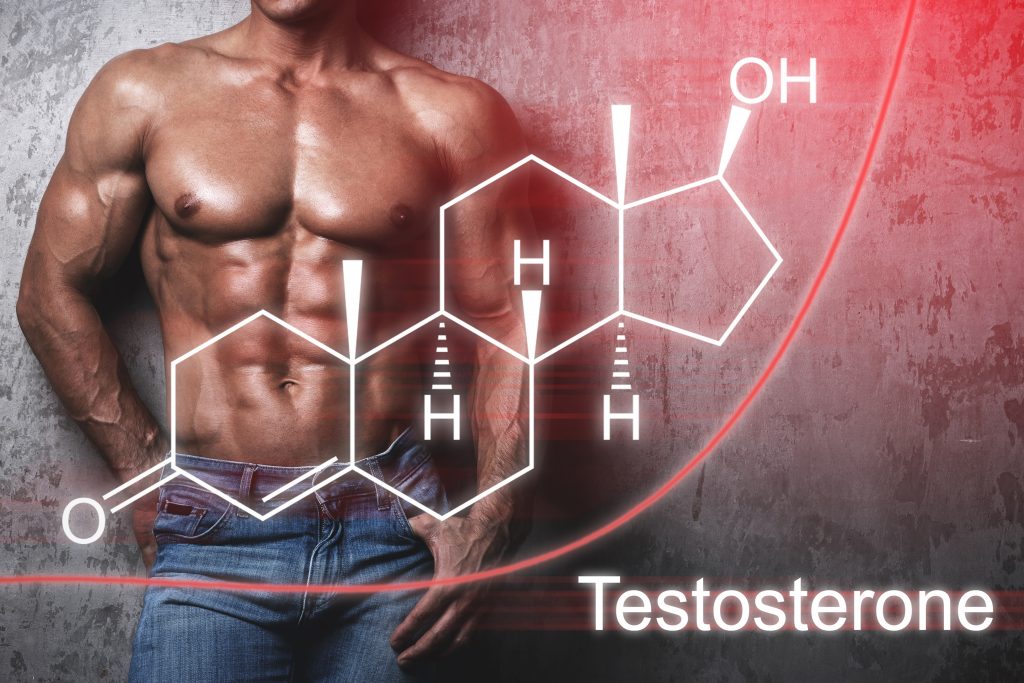People know that testosterone is a sex hormone, but it also has a significant impact on one's health. let’s take a look at “What Lowers Testosterone”. It's critical to keep this hormone’s levels in check if you want to develop muscle mass, improve sexual function, or increase strength.
Table of Contents
What Lowers Testosterone Levels: What are the Causes, and How Can You Prevent It?
It is true that testosterone levels are dropping all around the world. As a wave of low testosterone diagnoses sweeps the nation, many men are anxious about their testosterone levels. Furthermore, the typical man's testosterone level is roughly 25% lower than it was 30 years ago.
While numerous factors play a role in testosterone management, a good diet is essential for maintaining testosterone levels and preventing them from falling too low.
What is Low Testosterone Levels?
When testosterone levels are less than 300 ng/dL, it is known as low testosterone. Experts have stated that a normal range is 300 to 1,000 ng/dL. If you want to check the amount of circulating testosterone, you should go for a blood test called a serum testosterone test.
What Decreases Testosterone?
Testosterone management is dictated by multiple factors, but maintaining a balanced diet is essential for keeping testosterone levels in check and preventing them from falling too low.
Hundreds of hours of research have shown that some diets have negative impacts on testosterone levels. Soy, almonds, salmon, spearmint tea, red reishi mushrooms, flaxseed, processed carbs, and meat hormones are just a few examples. It's critical to eat these meals in moderation to effectively fight these side effects.
There are beverages to avoid as well as meals that alter testosterone levels. Beer and water with high estrogen levels are two of the most well-known beverages. It has been discovered that even modest alcohol use can lower testosterone levels by up to 6.8%.
In today's world, sleep deprivation is a relatively frequent condition. Lack of sleep leads to lower morning testosterone levels in middle-aged and older men (and even younger males).
Regular exercise naturally raises testosterone levels, but too much of it might have negative consequences. High-intensity activities have been associated with reduced sex drive and testosterone levels, according to some studies.
Cortisol levels are directly related to chronic stress, making it difficult for hormones to flow through brain pathways. This inhibits the production of reproductive hormones, including testosterone.
What Foods Decrease Testosterone?
Here are the foods that decrease testosterone levels:
Soy and soy containing foods
Soy is high in phytoestrogen isoflavones, which are estrogen-like chemicals found in plants. These phytoestrogens can activate estrogen receptors in your body, but they can also inhibit androgen receptor activity, which is where testosterone attaches. If it can't attach to those receptors, your testosterone won't be able to do its job — and you won't be able to either.
Despite multiple research, the verdict on soy is still out, with inconsistent outcomes. It's definitely better to think of soy as a possible testosterone killer and limit your intake until further study is done.
Products derived from milk
Before you go for that cheese plate or a tall glass of whole milk, think twice. Dairy products have been shown in several studies to lower testosterone levels. Pregnant female cows provide the majority of commercially produced and marketed milk, and their milk is high in estrogen and progesterone. These hormones decrease gonadotropin-releasing hormone (GnRH), which males require for the production of follicle-stimulating hormone (FSH) and luteinizing hormone (LH) (LH). Your testes can't create testosterone if they aren't released.
Alcohol
A few drinks here and there won't give your hormones a hangover. However, if you drink a lot of beer, spirits, or wine, your testosterone levels may drop.
Alcohol use impairs the function of the hypothalamus, pituitary gland, and testes, according to considerable study. The hypothalamus, like cheese, is unable to release GnRH, the pituitary gland is unable to release FSH and LH, and your testes are unable to make testosterone. In other words, if you're overserved all of the time, your hormones will become underserved. Worse, they're the ones who foot the bill. Alcohol abuse may harm your body in a variety of ways, including your liver, kidneys, and heart, in addition to destroying testosterone. Please drink responsibly and in moderation.
Products from bakeries
Who doesn't like a delicious cookie or loaf of bread, especially one that has just come out of the oven? Unfortunately, many baked products are heavy in trans-unsaturated fatty acids, often known as trans-fat, which have been linked to a drop in T levels. According to a 2017 study, people who ate meals high in trans-fat had testosterone levels that were 15% lower than those who ate the least. Baked products like pastries, danish, pies, and other sweet delights can raise your insulin levels, and it can result in low testosterone levels and poor taste. Keep this in mind the next time you're tempted to have a second doughnut.
Mint
You may have heard that spearmint and peppermint are natural stress relievers, digestive aids and provide sinus relief. They can also aid in the freshening of your breath. Mint may, unfortunately, stink when it comes to male hormones, according to some studies. More study is needed, particularly with human male participants, before a conclusive link between mint and low testosterone can be established.
Nuts
Certain nuts have a negative impact on your hormones. Nuts have a good reputation for being abundant in healthful fats and minerals, but studies reveal that nuts strong in polyunsaturated fatty acids, such as walnuts, pistachios, peanuts, pecans, and almonds, might promote oxidative stress in storage tissues, lowering testosterone levels.
Flaxseed
There's no denying that flaxseed has health advantages, such as lowering blood pressure and enhancing cholesterol levels and intestinal health. However, too much of it can turn into a testosterone killer.
Other foods that can lower testosterone levels are processed foods, vegetable oil, and Licorice root.
Risks Associated with Low Testosterone Levels

This hormone is largely responsible for men's sexual urges. A drop in testosterone might result in a drop in libido. One of the most significant concerns for men with low testosterone levels is the possibility that their sexual drive and performance will be harmed.
Men may have a variety of symptoms linked to sexual function as they age, which might be caused by reduced levels of this hormone.
Low testosterone production is not a prevalent cause of erectile dysfunction. Hormone replacement treatment may assist your erectile dysfunction if you have erectile dysfunction and poor testosterone production. These adverse effects aren't usually noticeable right away. If they do, it's possible that low testosterone levels aren't the main factor.
Low levels of this hormone can cause a variety of physical changes in your body. The “masculine” hormone, testosterone, is occasionally referred to as such. It helps in muscular mass development, promotes the growth of body hair, and adds to a more manly appearance.
Low testosterone levels can lead to fatigue, sleeplessness, and other sleep disturbances. Sleep apnea can be caused or exacerbated by testosterone replacement treatment. Sleep apnea is a significant medical disorder in which your breathing continuously stops and starts while you are sleeping. In the process, it can interrupt your sleep pattern and put you at risk for severe concerns, such as a stroke.
It is a hormone that has an impact on emotional control. Low testosterone has been related to depression in males. The reasons can be low testosterone-related irritation, diminished sex drive, and weariness.
Foods That Raise Testosterone

Some medical therapies, particularly in younger men, can help to boost low testosterone levels, but a person can also stimulate the body to create more testosterone by making dietary and lifestyle changes. The foods that raise testosterone are listed below.
Bananas
Bromelain, an enzyme found in bananas, is known to help raise testosterone levels. Bananas are also great for keeping energy levels up and lowering antioxidants, making them the ideal on-the-go snack!
Beef
Red meat over consumption has become a severe health hazard. On the other hand, the right parts of meat are said to be helpful for men in improving their testosterone levels. More importantly, zinc is abundant in meats like ground beef. In addition, vitamin D is abundant in beef liver.
However, like with other things, you should consume beef without overeating. It is also possible to replace beef with a different protein. You can also go for a vegetable instead of eating it every day.
Shellfish
It is true that fish and oysters are helpful for low testosterone levels. However, a great approach to get zinc into your diet is to eat shellfish to improve testosterone levels.
Tuna and Salmon
Tuna is rich in protein, and it is also low in calories. You can also get a sufficient amount of vitamin D, which has been linked to higher testosterone levels. The typical person's daily vitamin D need is met by one dish of tuna. If tuna isn't your thing, other wonderful sources of vitamin D include salmon, cod, tilapia, and a variety of other seafood. When it comes to seafood, though, remember that moderation is key. To reduce your mercury consumption, limit yourself to two or three portions of seafood each week.
Tuna is high in Vitamin D, and it can be helpful in increasing testosterone levels by up to 90%! Vitamin D is important for sperm count maintenance, and tuna is a fantastic source of this vitamin, especially if you don't get much time outside!
Lemons
Lemons (like other citrus fruits) are excellent testosterone boosters! They, like garlic, assist in reducing cortisol levels, allowing the testosterone to be created faster. In addition, they also contain vitamin A, which is necessary for testosterone synthesis and can help suppress estrogen levels, making testosterone more effective.
Oats for Porridge
Porridge oats are high in B vitamins, which are essential for testosterone synthesis. B vitamins are available in the market in many forms, and many of them may be found in testosterone-boosting meals. Vitamin B6 has a direct function in testosterone synthesis by suppressing estrogen production and therefore allowing testosterone levels to grow!
Beans
Beans contain sufficient quantities of both zinc and vitamin D. They're also a plant-based protein that helps with heart health. Baked beans are another fantastic source of vitamin D and zinc, but you'll still need to complement your diet with other sources.
Spinach
This vegetable has long been regarded as one of the finest meals for increasing testosterone levels. It's one of the most popular superfoods! Spinach is a natural supply of magnesium, which has been linked to a higher amount of testosterone hormone. In addition, vitamin B6 and iron are also good for testosterone, and they are also found in spinach.
Egg Yolks
Another great source of vitamin D to include in your diet is egg yolks. In recent years, eggs have gained a negative image for being high in cholesterol, prompting many individuals to abandon egg yolks. However, it has been proven that egg yolks contain more nutrients than egg whites and. Moreover, they can aid men with low testosterone levels. You may comfortably eat one to three eggs for breakfast each day unless you have excessive cholesterol.
Use of Supplements to Raise Testosterone

Along with the proper diet, another effective way to boost testosterone naturally is with the use of supplements. Many people take testosterone boosters because they are considered to be a great way to increase muscle growth. Most of the testosterone boosters advertised on the internet claim to improve testosterone levels while, in fact, many of these products have no effect on testosterone levels at all. But some testosterone supplements do in fact enhance your testosterone levels, but this generally only lasts a few months.
When paired with a balanced diet, testosterone boosters can help enhance testosterone levels and provide additional advantages. Some testosterone boosters can enhance your testosterone levels by 20 to 50 percent, depending on the components and your lifestyle. Fenugreek is a well-studied plant that boosts testosterone levels and improves performance. So, it is recommended to use a testosterone booster containing Fenugreek.
Conclusion
An easy first step to deal with low testosterone levels is to create and keep to a balanced diet comprising the above-mentioned testosterone-boosting foods and supplements. However, to counteract low testosterone, we recommend you to see your primary care physician and plan your meals and supplements after consultation.
